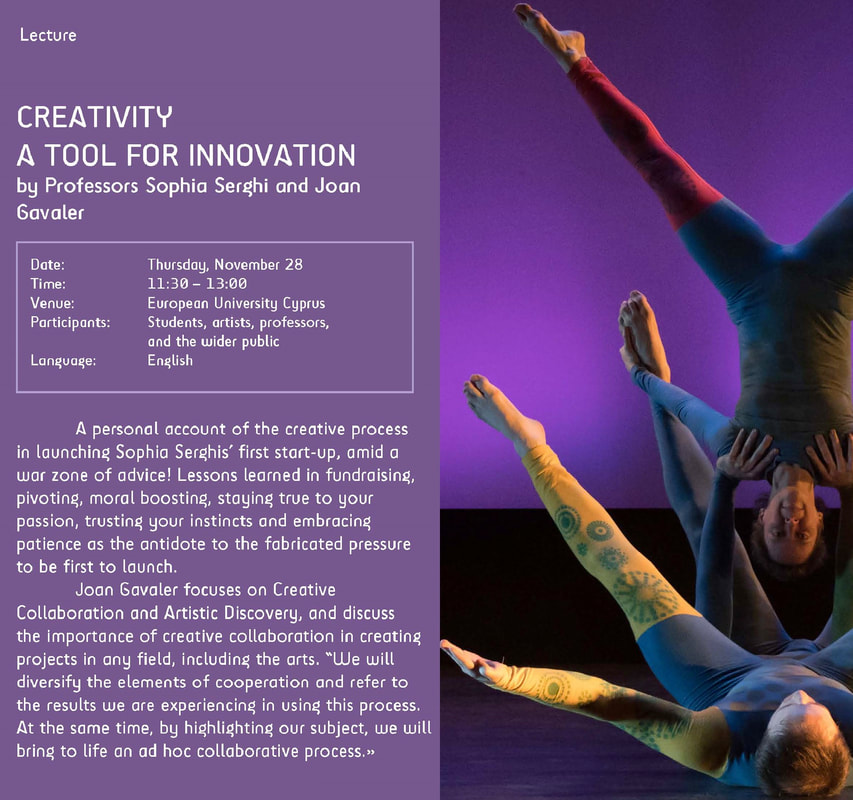"We have become entrepreneurs first by deeply realising our artistic identity and then by creating an entity that will support that identity." We have learned to understand different forms of art in categories with common themes suggested by art critics, like impressionism, fauvism, cubism, surrealism, abstract expressionism, op art, pop art and many more. William Gompertz, Arts Editor at the BBC, offered a word to bring together a large number of contemporary artists who are in vogue today: Entrepreneurialism – characterizes a group of artists whose common theme is to have recognized and taken on art in many ways as a business start-up. He cites Damien Hirst, Tracey Emin, Jeff Koons, Murakami and Ai Weiwei among others, and one might even add Cirque du Soleil. (re: Will Gompertz: “What are you Looking at? 150 years of Modern Art in the Blink of an Eye”, Viking 2012). Throughout the ages some artists have always been more commercially minded than others, but a set of artists active today is more openly learning from business and blending with it. Dr Sophia Serghi, educator, musician and entrepreneur and Dr Joan Gavaler, educator, choreographer and performer, Professors at William and Mary College, Virginia, responded to some of my questions about business and the arts. So tell us about your work and your Cyprus agenda next week.
We met at William & Mary in 1995. One of our first collaborations as Professors was to bring Sophia’s music composition students and Joan’s dance performance students together to collaborate and co-create. Since then, we have encouraged one another as artists, teachers, and business owners. In 2016 Sophia started working with Joan’s company - Aura CuriAtlas Physical Theatre – to create A Life With No Limits, inspired by Sophia’s friend, Stephen Hawking. After the premiere in February 2017, the company began experimenting with movement images of the 22 cards of the Major Arcana Tarot deck combined Sophia’s music for each card to create The Fool and The World which premiered in March 2019. These works will be presented in Limassol and Nicosia, on 25 and 27 November 2019. As artists and entrepreneurs we shall also present a lecture on Creativity as a Tool for Innovation at the European University of Cyprus, November 28, 11:30am. We have been invited by cultural organisation Multi-Arts Crossings of Cyprus and supported by the Cultural Services of Cyprus and the US Embassy in Cyprus. We are particularly grateful to Argyro Toumazou for the Creative Direction and Production and Achilleas Demetriades for his legal support. All over the world much funding for the arts comes from private sponsorships and the state. What are the challenges of being an entrepreneur in the arts? In the United States, the arts used to be funded by the National Endowment for the Arts, but those grants are not available for individual artists. One needs, not only the artist identity, but also organised entities, eligible to apply for funding from various agencies and to manage well such funding. That being said, the old model of state patronage and private sponsorship is still the number one source of support for the arts, and that of course requires quite a bit of engagement and agency from the artists themselves to be able to brand themselves and offer not just their art but additional services so that a sponsorship of a performance becomes possible. Finally, even though we have support from private funds, there are still a lot demands on top of just a performance, to make it also a viable partnership. In other words we are not just selling our arts but also a lot of extra services, whether it be workshops and lectures or advertising in partnership with the sponsor. An artist essentially needs to become a full-blown business person to be able to sustain themselves for their art. Another challenge in finding grants or support for artistic work is having many artists applying for a limited amount of funding. And it is also a challenge is finding sponsors who understand the value of performing arts in opening people’s minds and encourage their own courage. I have always held that innovation is impossible without creativity. In your approach to the subject how do you see creativity as a lead to innovation? This is one of our favourite subjects because we believe that the ability to be creative is the crux of any kind of innovative progress that happens in any field, whether it be medicine, engineering or science and definitely the arts. In fact connecting the dots as you see them in any field in a very creative manner and push the envelope towards new ideas requires a tremendous amount of creativity. The question to be asked is whether creativity is innate or learned. We believe that it is something that can be taught and developed, even if some people are at the start more able to connect the dots, and use seemingly unrelated matters to generate new ideas. At the end of the day, we are not re-inventing the wheel, everything is there for you, as a palette of eight colours, but how you combine them is the creative skill that can be developed. A lot of our education system unfortunately ends up limiting our understanding to the notion of the eight first colours, instead of creating an environment of learning, combination and experimentation that are so essential to innovation. We use Art as a basic tool. You could be reading a newspaper article on the current status of the financial market and another article on an avant-garde performance at Brooklyn Academy of Music in New York. How you can relate the information in the two articles in a way that will give you an idea, as a seed to move on and create something new. This is an ability in which some do better than others but all can train to become better still. Whatever the business, it’s important not to restrict oneself to how anything has been done in the past. A creative mind-set makes people willing to re-shape their assumptions at a deep level about what would be an effective and exciting way to reach for their goals. Many artists don’t like to deal with publicity, organizational logistics and financials as they take time away from the specialized creative endeavors they are passionate about. Do you think that creative musicians and dancers can also be creative marketers and financiers? In other words do you see the performers or musicians themselves as entrepreneurs or are other enablers such as producers more suited to handling the business aspects of performance? Just as the Creativity question, is one born an entrepreneur or is made into one ? We artists, and we take ourselves as examples here, we love the creative process making music or choreography rather than running a business. However if we apply what we know as creative artists into the business world, it makes us entrepreneurs of a quite unique flavor. Entrepreneurship is adaptable to whatever you are trying to sell. We will not sell our music or performance as a business man selling hotels, but as creative musician or choreographer. That way we can be unique entrepreneurs with unique start-up ideas indigenous to our genres. We have become entrepreneurs first by deeply realising our artistic identity and then by creating an entity that will support that identity. This transition from identity to entity is Sophia’s own process as an artist and entrepreneur who represents other artists in her company called APLAUD. Artists leading a start-up have to be business people to support their activity. It would be ideal to find entrepreneurial partners who thrive working on business questions and who want to create new business approaches for a performing company. What are the challenges faced by artists entering the field of entrepreneurship? Like going on stage in a premiere, the main challenge is overcoming fear. As artists we are definitely not taught to be entrepreneurs, dealing with money sometimes is incredibly difficult for artists. It requires a tremendous amount of discipline to brand and sell yourself. So we would say gaining confidence in entrepreneurship is primarily what is needed. Psychological training is definitely required, as is networking with other successful artists and learning from them. In our experience lawyers can be very supportive too, helping you validate and set the backbone so you can get from a to b to c, to d. Good business advice and a good support group will elevate confidence to a point that you can actually sell yourself, promote your arts organization and learn how to translate artistic and cultural value into financial value.
0 Comments
Leave a Reply. |
LATEST POSTS
Archives
July 2021
|

